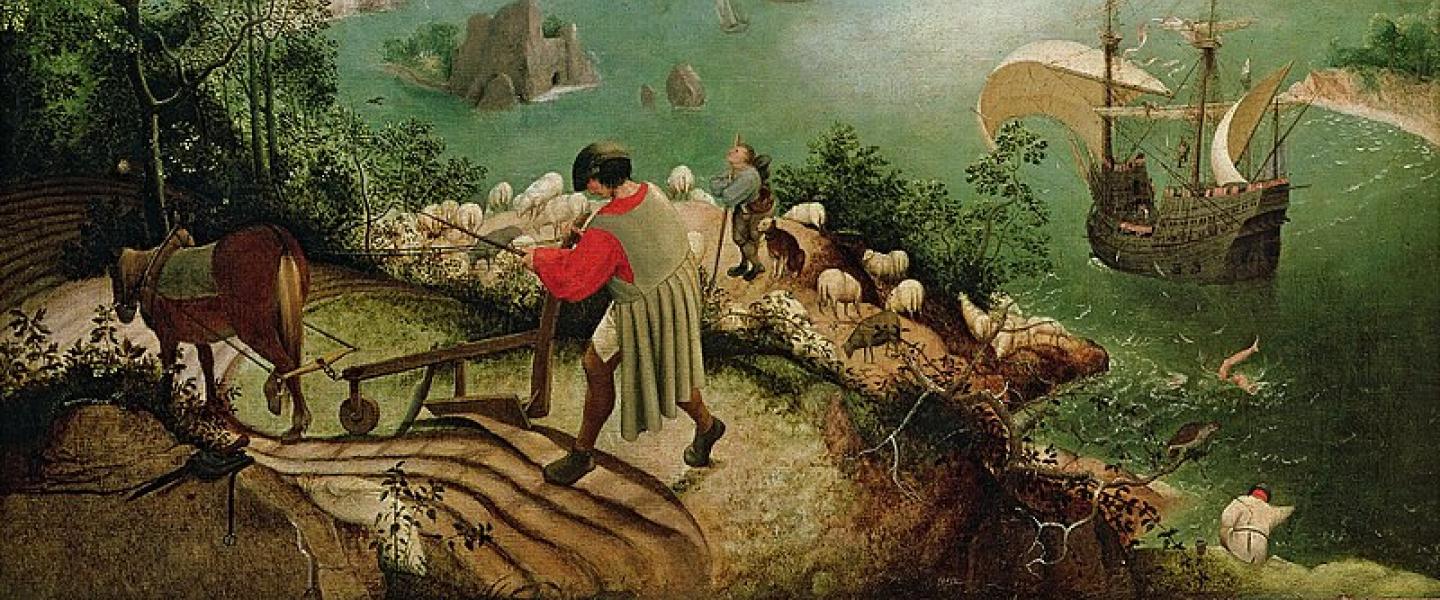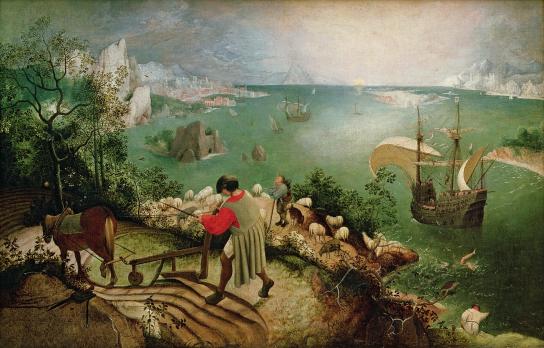Art


Fall of Icarus
The Fall of Icarus, Pieter Bruegel (c. 1525-69) inspired several poems, two of which are included below, which spoke to the painting’s depiction of human ambition as well as humankind’s indifference to suffering.
Musee des Beaux Arts
W.H. Auden
1938
About suffering they were never wrong,
The old Masters: how well they understood
Its human position: how it takes place
While someone else is eating or opening a window or just walking dully along;
How, when the aged are reverently, passionately waiting
For the miraculous birth, there always must be
Children who did not specially want it to happen, skating
On a pond at the edge of the wood:
They never forgot
That even the dreadful martyrdom must run its course
Anyhow in a corner, some untidy spot
Where the dogs go on with their doggy life and the torturer's horse
Scratches its innocent behind on a tree.
In Breughel's Icarus, for instance: how everything turns away
Quite leisurely from the disaster; the ploughman may
Have heard the splash, the forsaken cry,
But for him it was not an important failure; the sun shone
As it had to on the white legs disappearing into the green
Water, and the expensive delicate ship that must have seen
Something amazing, a boy falling out of the sky,
Had somewhere to get to and sailed calmly on.

Landscape with the Fall of Icarus (c. 1555) is an oil painting attributed to Pieter Bruegel the Elder. It shows the Greek mythological figure, Icarus, plunging into the sea in the lower right-hand corner.
Landscape with the Fall of Icarus
William Carlos Williams
1960
According to Brueghel
when Icarus fell
it was spring
a farmer was ploughing
his field
the whole pageantry
of the year was
awake tingling
near
the edge of the sea
concerned
with itself
sweating in the sun
that melted
the wings' wax
unsignificantly
off the coast
there was
a splash quite unnoticed
this was
Icarus drowning

Please log in to comment.